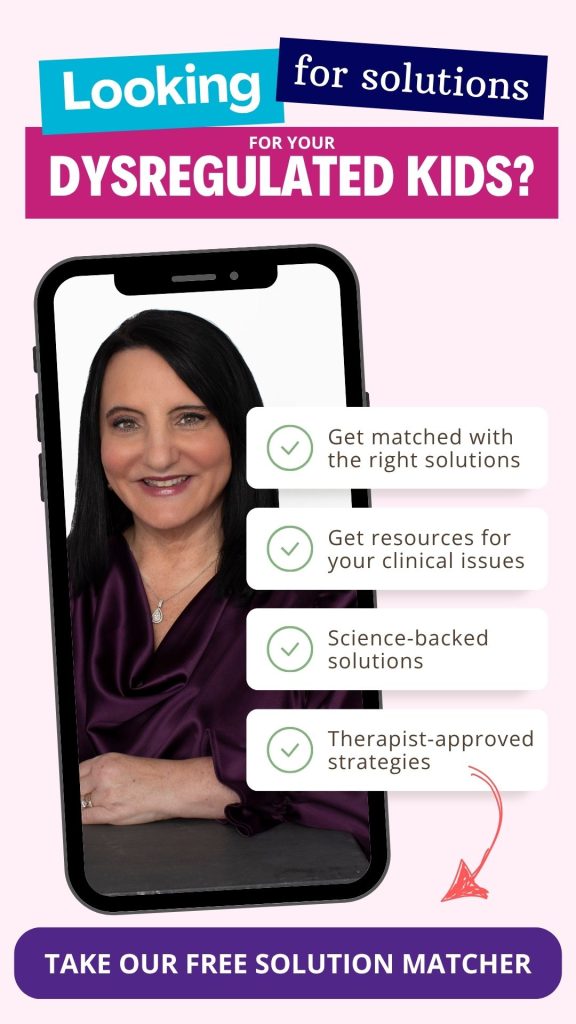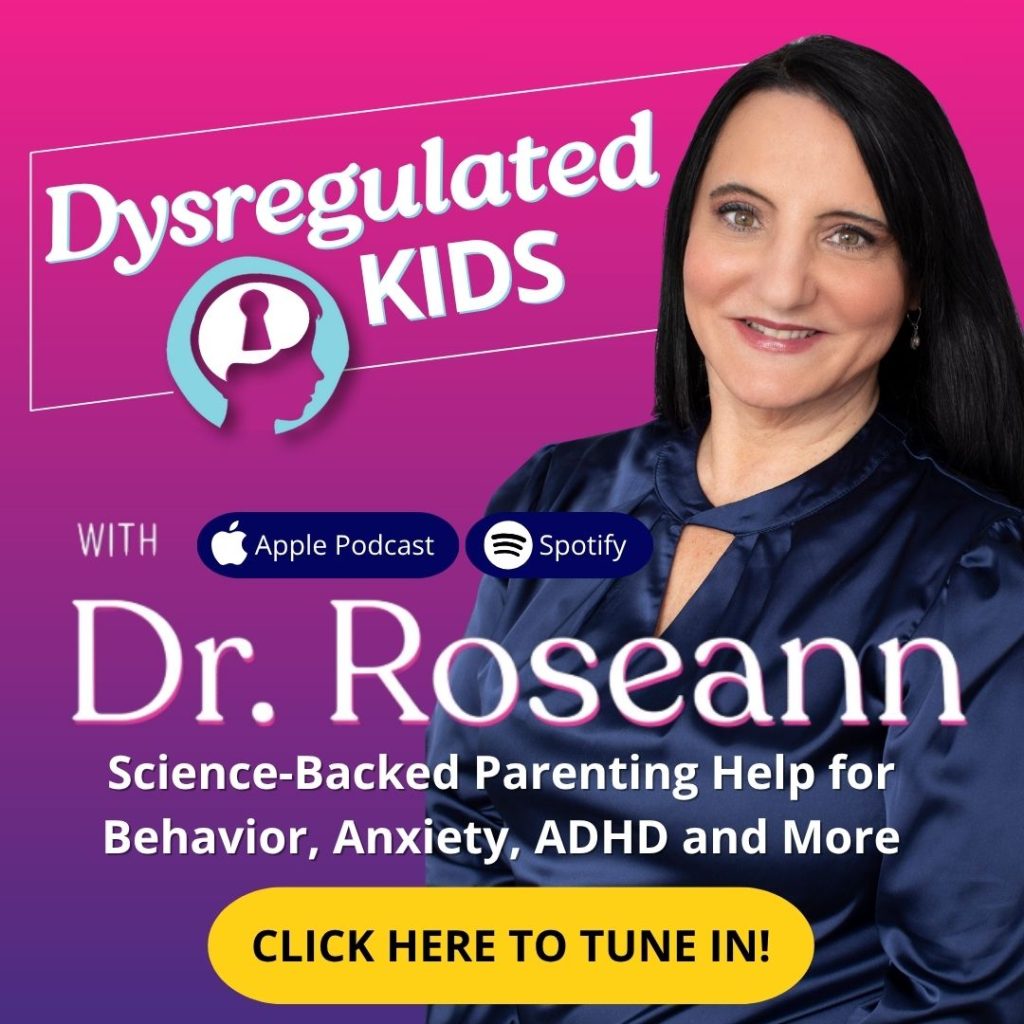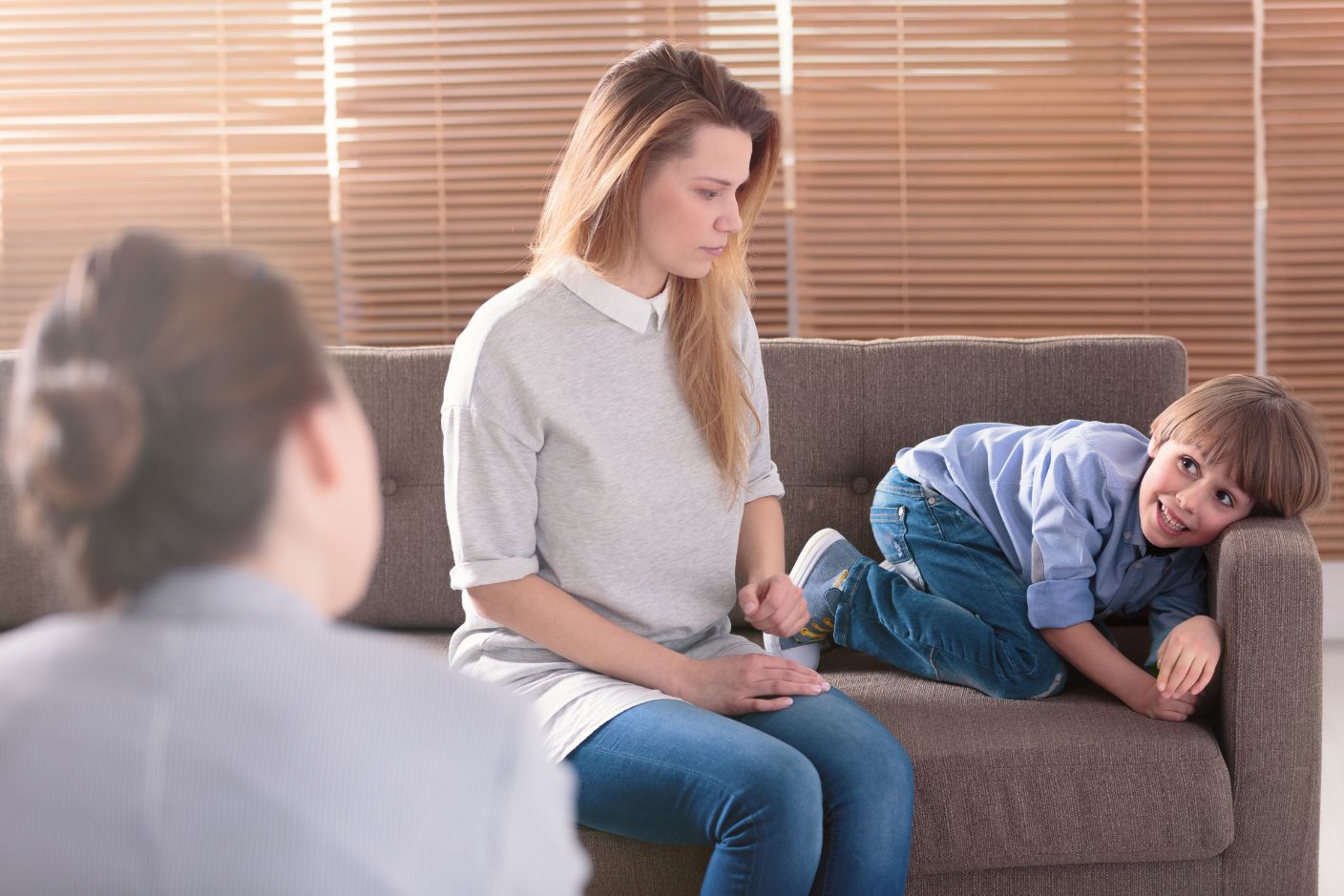
Estimated reading time: 7 minutes
If your child suddenly refuses meals, craves only carbs, or swings between overeating and barely touching their plate—you’re not imagining things.
These shifts in eating habits may be a sign that your child’s nervous system is out of balance. When the brain and body are dysregulated, appetite and food preferences can become unpredictable or extreme. Understanding how a dysregulated nervous system affects children’s eating patterns is key to helping your child feel safe, nourished, and in control again.
What Role Does The Nervous System Play in Eating Behavior?
When your child’s brain is stuck in survival mode, even eating can become unpredictable. It's not just emotions that go haywire—appetite can too.
In fact, research shows that kids who struggle with loss-of-control eating often have changes in how their brain processes reward and impulse control. That means it’s not just behavior—it’s biology showing up at the table (Pearce et al., 2024).
These patterns suggest that dysregulation isn't just emotional—it's also neurological.
The nervous system helps regulate appetite, digestion, and emotional responses to food. It relies on a constant stream of signals—from hormones like ghrelin and leptin to gut-brain feedback via the vagus nerve.
But when a child is anxious or overwhelmed, their brain may override these hunger and fullness cues.
In regulated states, eating is balanced. In dysregulated states, that balance is lost.
When the nervous system is stuck in "survival mode," everyday routines like meals feel overwhelming. What looks like "picky eating" often runs much deeper.
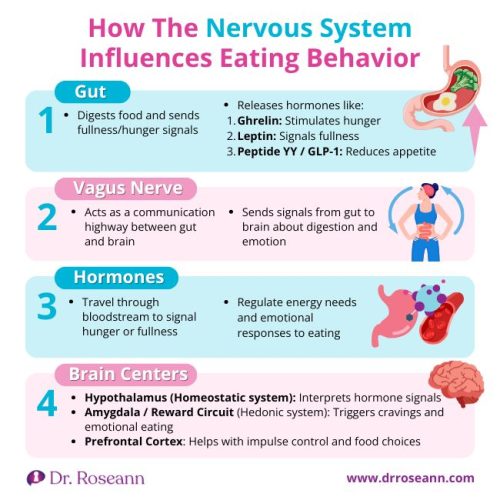
What Are the Signs of Nervous System-Linked Eating Patterns?
Kids who are dysregulated may:
- Crave sugar or carb-heavy foods for quick comfort
- Avoid meals due to nausea, anxiety, or sensory overload
- Say they're "not hungry" despite not eating all day
- Experience low appetite or sluggish digestion from freeze responses

And one study even found that kids who kept eating even when they weren’t hungry had brain activity that looked different in areas tied to self-control and reward (Shapiro et al., 2020).
How Do Brain Systems Affect Food Choices?
The brain has two major systems for eating:
- Homeostatic system (hypothalamus): regulates physical hunger
- Hedonic system (amygdala, reward centers): drives emotional and pleasure-based eating
When dysregulated:
- Hormone signals may go haywire
- Dopamine-seeking increases sugar cravings
- Inhibitory control (prefrontal cortex) weakens
That’s why some kids binge, graze all day, or obsess over one "safe" food—it’s the brain trying to feel safe.
Brain scans back this up—researchers have found that when kids have trouble with emotional regulation, the areas of the brain responsible for reward and impulse control are often working overtime or not quite syncing (Smith et al., 2021).. That’s a big reason why some kids obsess over certain foods, graze all day, or seem stuck in food routines that don’t make sense from the outside.
Why Do Some Kids Emotionally Eat?
Emotional eating is often a coping tool for kids who feel overwhelmed. Sugary or carb-rich foods activate the brain’s reward system and can bring brief relief.
This isn’t about willpower—it’s about nervous system regulation.

What’s the Role of Interoception in Eating?
Interoception is the sense that helps your child recognize internal body signals—like hunger or fullness. In dysregulated kids, interoception often breaks down.
"Interoception involves three categories: conscious needs (like feeling thirsty), unconscious brain-body communications, and the synchronous prediction system where body and mind respond to events together." — Sahib Khalsa, MD, PhD
Kids might:
- Eat because they feel “off” but don’t know why
- Refuse food because hunger feels like panic
- Keep eating to numb a weird body sensation
When the body’s cues are confusing, eating becomes a guessing game.
Can Trauma or Anxiety Affect a Child’s Eating?
Absolutely. Kids with trauma, anxiety, or sensory processing issues often have complex food relationships.
"Research shows that people who experienced emotional abuse in childhood are twice as likely to have a food addiction in adulthood as those who were not abused." — Diane Petrella, MSW
- Food may have been scarce, overcontrolled, or emotionally charged
- Anxiety dulls appetite or fuels compulsive eating
What looks like resistance may be the body trying to self-protect.
It’s not manipulation—it’s a stress response.
When Should I Worry About an Eating Disorder?
Sometimes dysregulation evolves into disordered eating. Watch for:
- Consistent food refusal or rapid weight loss
- Sneaking food or obsessive eating habits
- Comments about body image
Parent example: Melissa noticed her teen daughter skipping dinner for days. She later admitted she was overwhelmed at school and food made her feel sick. Therapy helped uncover both emotional and sensory triggers.
If you're concerned, trust your gut. Early help from a provider trained in child mental health and nutrition makes all the difference.
How Can I Support My Child’s Eating and Regulation?
You can’t force your child to eat—but you can support their nervous system so eating becomes easier. Try these:
- Regulate before meals: Use breathwork or calming routines
- Provide structure without pressure: Stick to predictable meals/snacks
- Honor sensory needs: Respect texture/smell issues and allow safe foods
- Stay emotionally present: Ditch the “just eat it!” script—lean into connection
- Consider tools like neurofeedback, magnesium, or PEMF
- Consult a professional: Especially if patterns feel stuck or worrying
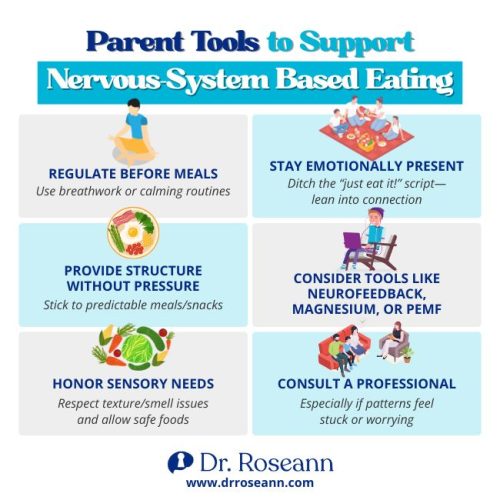
If your child’s eating seems off, it’s worth asking why. What stress, sensory demand, or unmet need could be throwing their system out of balance?
When we stop labeling kids as "picky," "manipulative," or "difficult," and start supporting their nervous system, eating becomes less of a fight—and more of a connection point.
This is slow, relationship-based work. But with patience, regulation, and compassion, your child can rebuild a trusting relationship with their body and with food.
Terminology
Interoception: The internal sense that helps us recognize signals from our body, such as hunger, fullness, thirst, or the need to go to the bathroom. Dysregulated kids may misread or ignore these signals.
Homeostatic System: The brain system (centered in the hypothalamus) that helps regulate basic survival needs like hunger and thirst based on internal cues.
Hedonic System: The reward-based system in the brain (involving the amygdala and dopamine pathways) that influences eating for pleasure or emotional relief.
Vagus Nerve: A major nerve connecting the brain and gut, carrying signals about digestion and emotional state. It plays a role in how we experience hunger, fullness, and calm.
FAQs
What if my child only eats beige foods?
That can be a sign of sensory-based restriction or emotional coping. Start with nervous system regulation before expanding their diet.
Is emotional eating always a problem?
Not necessarily. It’s a cue to look deeper at what your child needs to feel safe and regulated.
Should I make my child eat when they refuse?
Avoid forcing. Focus on co-regulation and predictability instead—safety comes before appetite.
Citations
Pearce, A., Fuchs, B., Adise, S., Masterson, T., Fearnback, N., English, L., and Keller, K. (2024). Loss of control eating in children is associated with altered cortical and subcortical brain structure. Front. Psychol 14. https://doi.org/10.3389/fpsyg.2023.1237591
Shapiro, A., Johnson, S., Sutton, B., Legget, K., Dabelea, D., and Tregellas, J. (2020). Eating in absence of hunger in young children is related to brain reward network hyperactivity and reduced functional connectivity in executive control networks. Pediatr Obes. 14(6). https://doi.org/10.1111/ijpo.12502.
Smith, K., Luo, S., and Mason, T. (2021). A systematic review of neural correlates of dysregulated eating associated with obesity risk in youth. Neurosci. Biobehav. Sci. 124:245-266. https://doi.org/10.1016/j.neubiorev.2021.02.013
Dr. Roseann is a mental health expert in Self-Regulation who frequently is in the media:
- Healthline Understanding Self-Regulation Skills
- Scary Mommy What Is Self-Regulation In Children, And How Can You Help Improve It?
- HomeschoolOT Therapy Services Understanding Nervous System Dysregulation in Children: A Guide for Homeschool Parents
Always remember… “Calm Brain, Happy Family™”
Disclaimer: This article is not intended to give health advice and it is recommended to consult with a physician before beginning any new wellness regime. *The effectiveness of diagnosis and treatment vary by patient and condition. Dr. Roseann Capanna-Hodge, LLC does not guarantee certain results.
Are you looking for SOLUTIONS for your struggling child or teen?
Dr. Roseann and her team are all about science-backed solutions, so you are in the right place!


%20.png)


